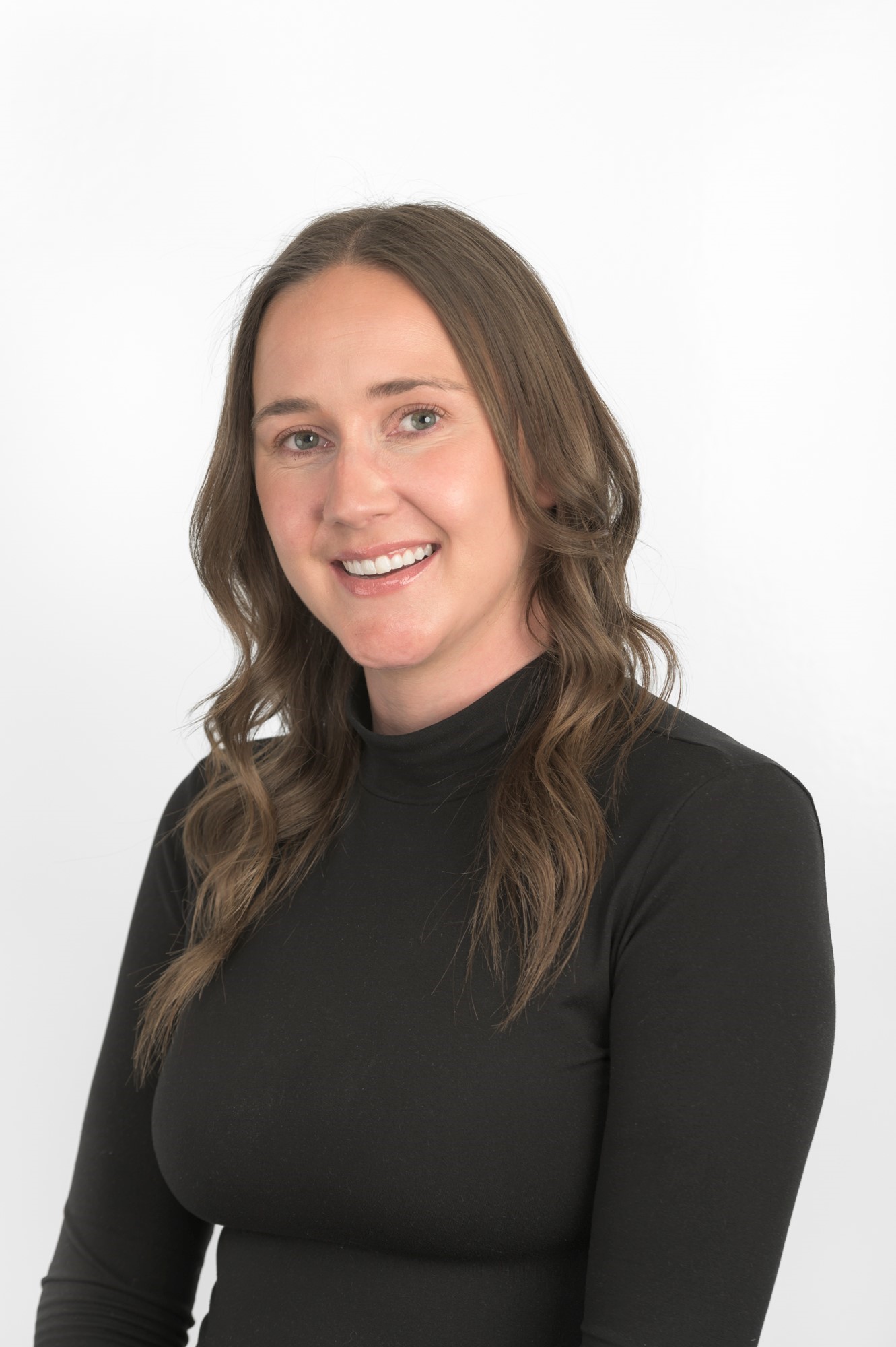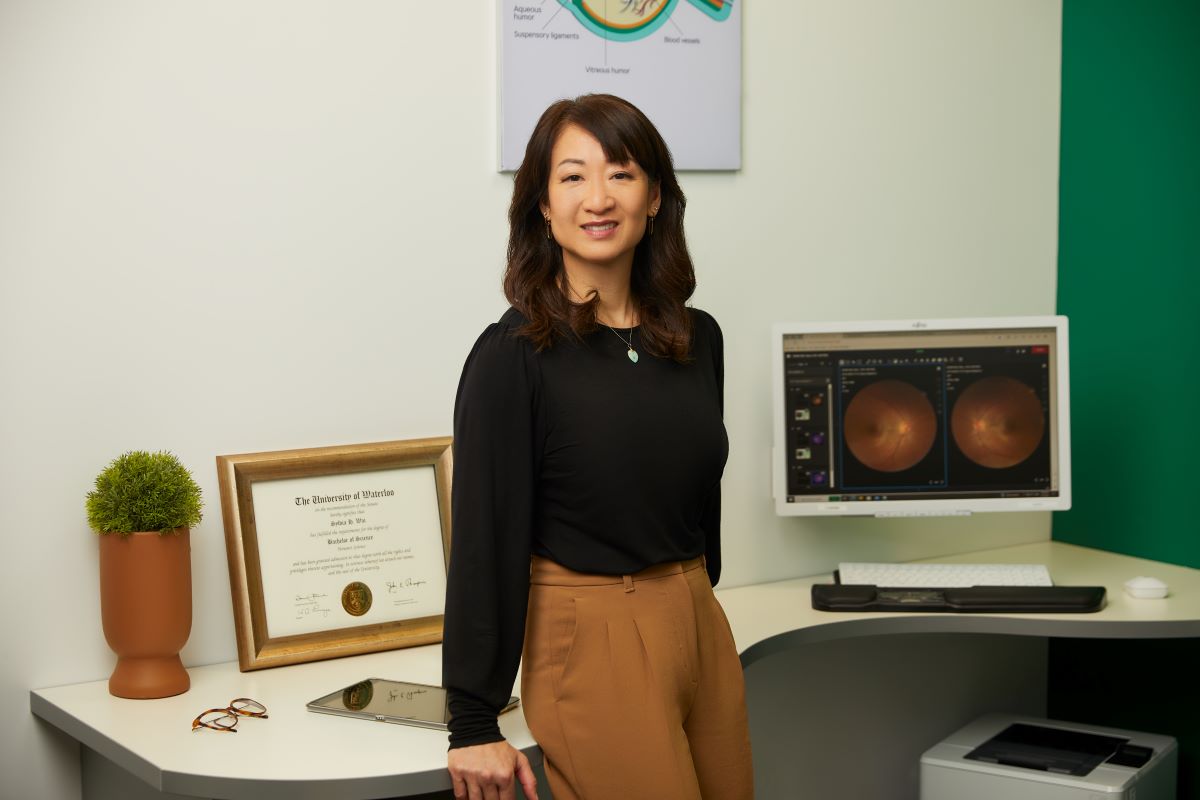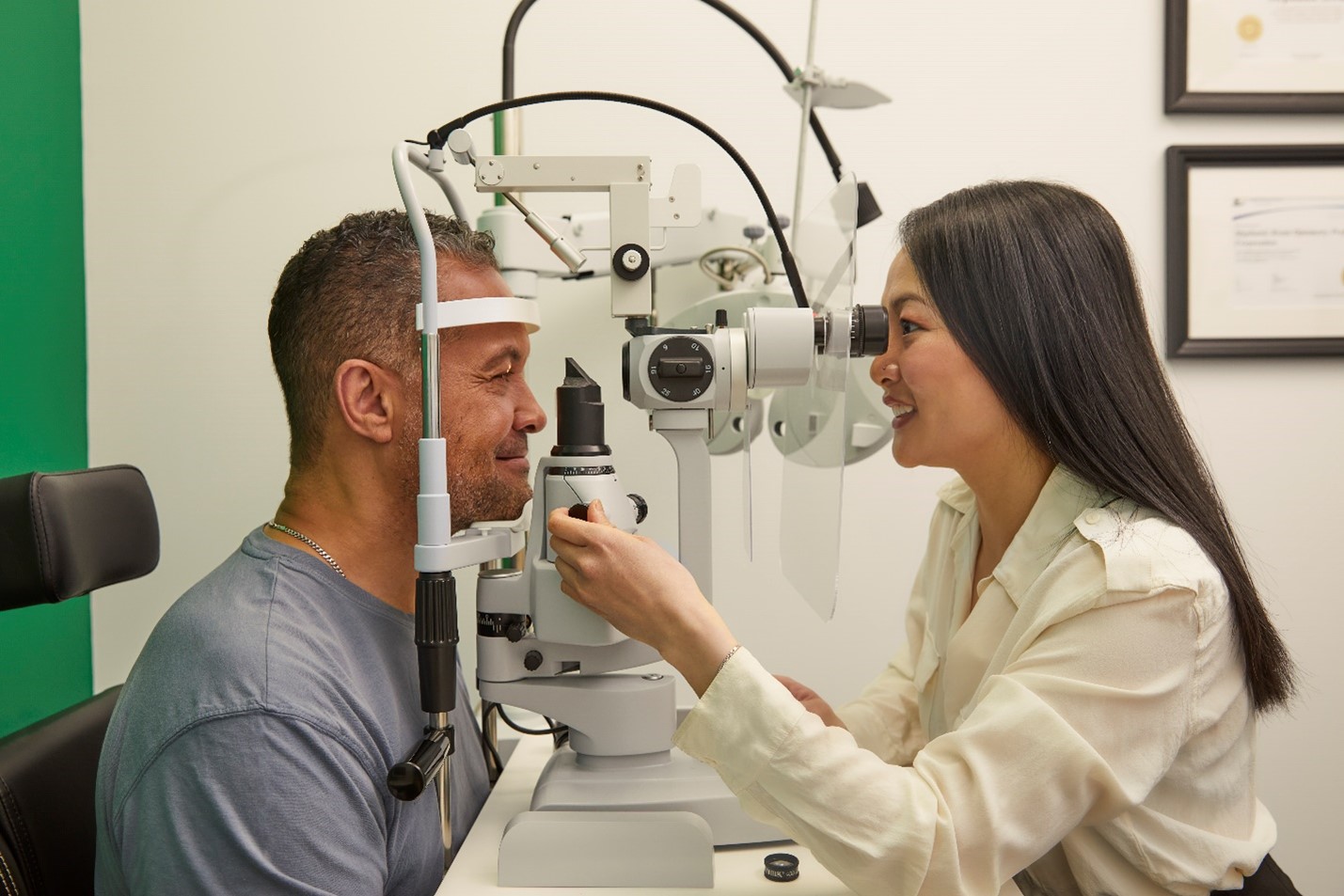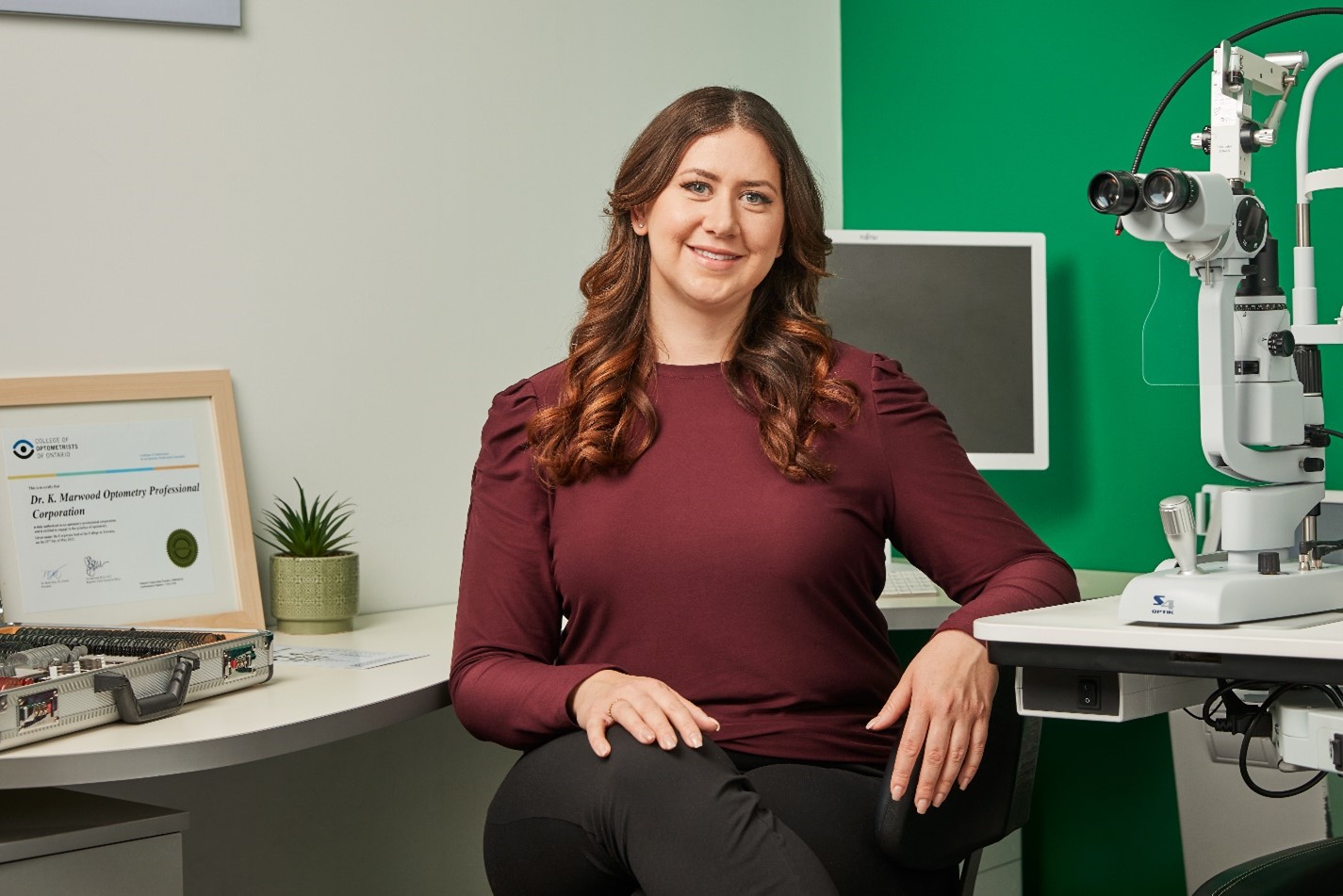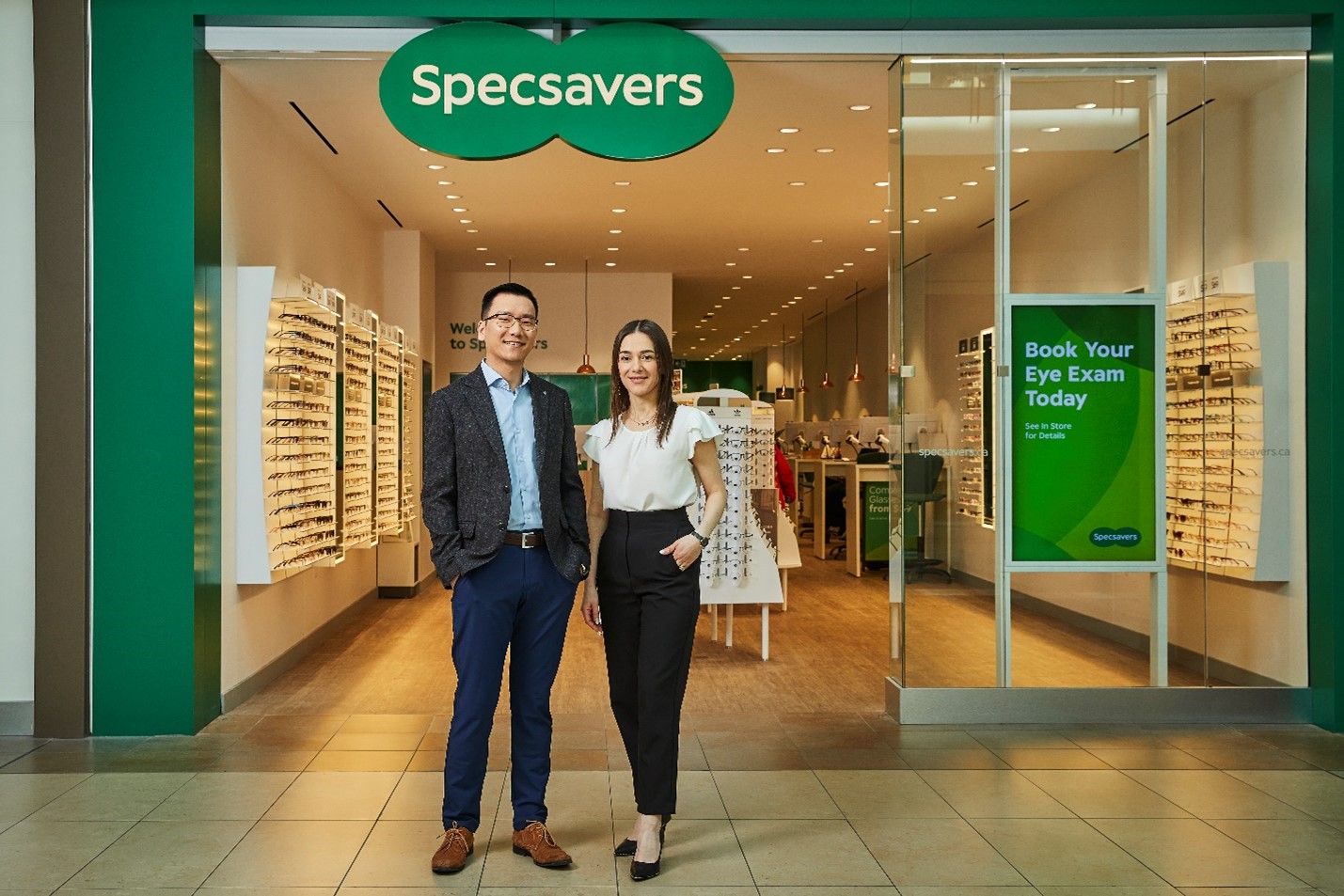
In our cashless society, it’s common to lose the connection between what we are earning and what we are spending, often leading to empty bank accounts and increasing debt. How do you manage debt effectively while building long-term financial security and peace of mind?
-
Review Your Cash Outflows
Sounds so simple, but do you know where your money is actually going?
Review a minimum of 3 months of bank and credit card statements. Summarize where your money has been going. Be honest. You might be surprised how much you are spending eating out, the number of “tap” charges you are paying, and the actual burden of interest charges.
-
Create a Cash Flow Plan and Stick to It
Now that you know where the money is going, create a better solution.
This solution still needs to be realistic in order to be successful. Build in your mandatory payments like student loan repayment, car payments, rent and disability insurance premiums. Add in your after tax income. Then review how much you can allocate to everyday expenses like gas, groceries, gifts, clothing and social activities. Tracking this spending allows you to manage it and discipline gives you a clear plan for reaching your goals.
-
Build and Maintain an Emergency Fund
An emergency fund is your personal safety net. Life is unpredictable and unexpected expenses, like a car repair or sick pet, can throw your financial stability into chaos. Your emergency fund should also be able to cover your basic needs while you wait out the elimination period before your disability insurance benefits are payable in the event that you are unable to work due to illness or injury.
The general recommendation is to have at least 3 to 6 months worth of living expenses set aside in an accessible, but separate, account from your daily spending.
Carve out a piece of your monthly income to build up this pool and use it for true emergencies only.
-
Control Debt Wisely
Debt isn’t inherently bad, but it’s important to manage it carefully and use it strategically.
First focus on paying off high-interest debt, like credit card balances (and be committed to permanently keeping it off). These debts grow quickly and can easily overwhelm your finances if not addressed promptly. Look back at our previous article on Tackling Debt [https://www.eyecarebusiness.ca/resources/tackling-debt/ ] to learn about the Avalanche & Snowball methods.
-
Save & Invest for Your Future
The final principle of personal cash management focuses on the future you. Sometimes hard to image when you are in the here and now, but the future you deserves your love.
Once you’ve build up your emergency fund and managed your debt, you can begin focusing on saving for future goals – buying a home, funding your child’s education and saving for retirement.
It’s essential to have a plan in place for your savings goals and the investments you pick should align with the time frame of each goal to help create a financial future of true freedom.
A Fool & His Money are Soon Parted
Understanding income, expenses, debt and savings are key to creating a stress free present and a future filled with opportunity. A holistic financial plan should integrate all aspects of your life in order to truly put you in the driver’s seat.
The best plans use a long-term strategy where your progress is measured and goals are adjusted as your life changes.
It is never too early or too late to set your financial plan in motion. Interested in an advisor that understands how to live for today and tomorrow, give us a call (780-261-3098) or email (Roxanne@C3wealthadvisors.ca) to set up your next conversation.
Roxanne Arnal is a CFP®, former Optometrist, Professional Corporation President, and practice owner. Today she is on a mission to Empower You & Your Wealth with Clarity, Confidence & Control.
These articles are for information purposes only and are not a replacement for personal financial planning. Everyone’s circumstances and needs are different. Errors and Omissions exempt.
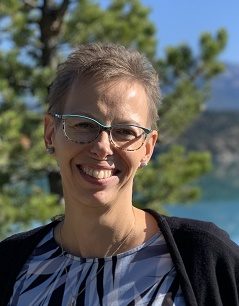
ROXANNE ARNAL,
Optometrist and Certified Financial Planner
Roxanne Arnal graduated from UW School of Optometry in 1995 and is a past-president of the Alberta Association of Optometrists (AAO) and the Canadian Association of Optometry Students (CAOS). She subsequently built a thriving optometric practice in rural Alberta.
Roxanne took the decision in 2012 to leave optometry and become a financial planning professional. She now focuses on providing services to Optometrists with a plan to parlay her unique expertise to help optometric practices and their families across the country meet their goals through astute financial planning and decision making.
Roxanne splits EWO podcast hosting duties with Dr. Glen Chiasson.






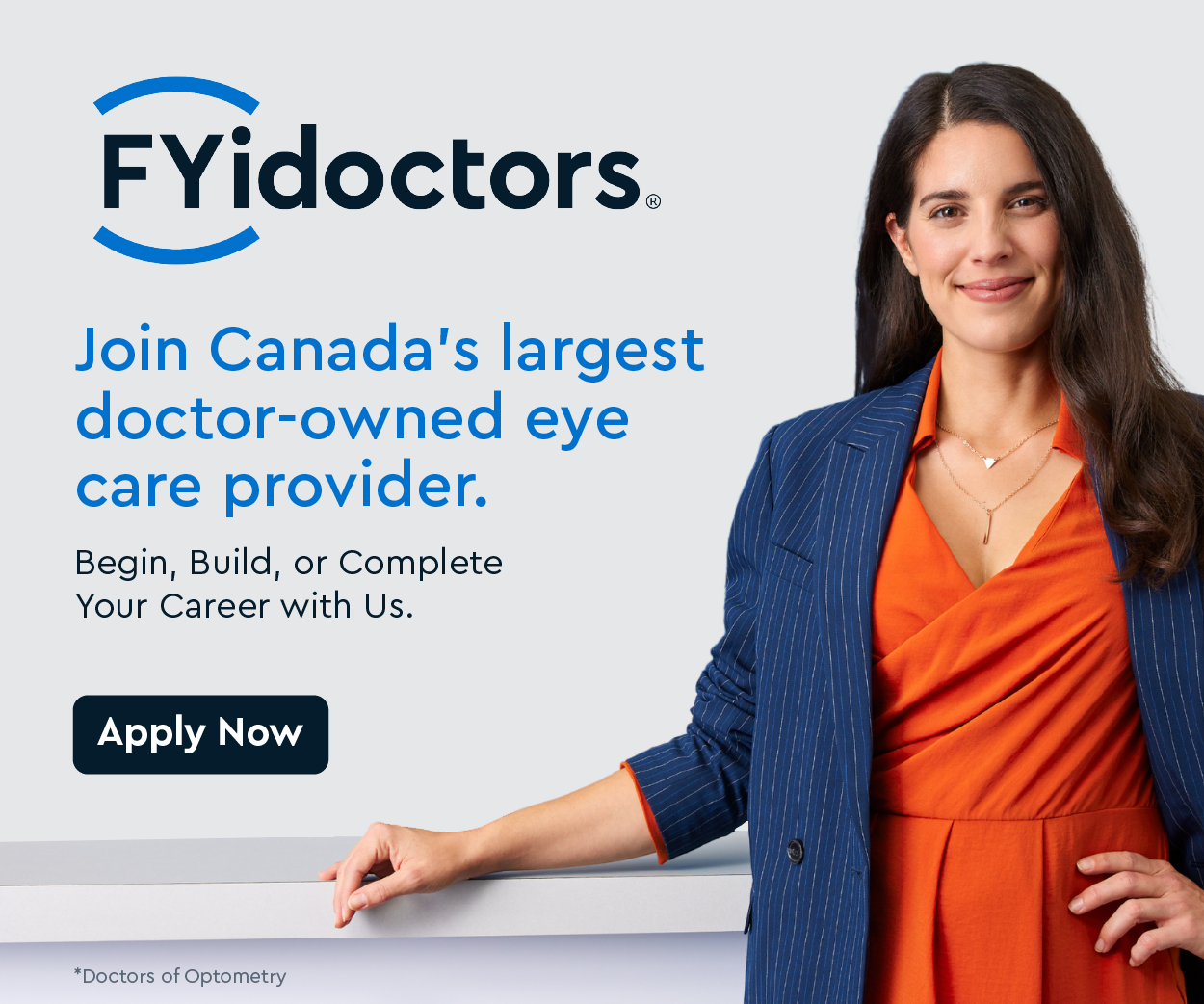




 Turn your aspirations into reality with guidance from our expert coaches. They’ll help you set clear business objectives, pinpoint your target market, and devise an effective strategy.
Turn your aspirations into reality with guidance from our expert coaches. They’ll help you set clear business objectives, pinpoint your target market, and devise an effective strategy. Achieving success in optometry requires more than just clinical prowess; robust management skills are just as critical. This program provides hands-on coaching in vital areas such as finance, operations, and business development, ensuring a comprehensive approach to practice management.
Achieving success in optometry requires more than just clinical prowess; robust management skills are just as critical. This program provides hands-on coaching in vital areas such as finance, operations, and business development, ensuring a comprehensive approach to practice management. The path of entrepreneurship is full of challenges, but you won’t be alone. Our coaches offer continuous encouragement and support, empowering you to unlock your potential and tackle obstacles confidently.
The path of entrepreneurship is full of challenges, but you won’t be alone. Our coaches offer continuous encouragement and support, empowering you to unlock your potential and tackle obstacles confidently. Vision Entrepreneur connects you to a vast optometry community. Our coaches introduce you to professionals, mentors, and investors. By expanding your professional network and resources, they open doors to clinic acquisition opportunities.
Vision Entrepreneur connects you to a vast optometry community. Our coaches introduce you to professionals, mentors, and investors. By expanding your professional network and resources, they open doors to clinic acquisition opportunities. Develop marketing and sales strategies that attract and retain clients. By adjusting a game plan to your niche and budget, our coaches guide you to create compelling marketing materials and targeted sales strategies while enhancing your online presence.
Develop marketing and sales strategies that attract and retain clients. By adjusting a game plan to your niche and budget, our coaches guide you to create compelling marketing materials and targeted sales strategies while enhancing your online presence. Starting an optometry practice involves a deep understanding of the legal and regulatory landscapes. Our program offers expert advice and links you with legal professionals to ensure full compliance with all regulations.
Starting an optometry practice involves a deep understanding of the legal and regulatory landscapes. Our program offers expert advice and links you with legal professionals to ensure full compliance with all regulations. Balancing the demands of entrepreneurship without compromising personal well-being is crucial. Our coaches provide strategies to help you manage stress and maintain a healthy balance, ensuring you thrive both personally and professionally.
Balancing the demands of entrepreneurship without compromising personal well-being is crucial. Our coaches provide strategies to help you manage stress and maintain a healthy balance, ensuring you thrive both personally and professionally. Transform the dream of a successful optometry practice into reality with Vision Entrepreneur. Ready to take the first step toward a successful optometry practice? Visit us today to learn more.
Transform the dream of a successful optometry practice into reality with Vision Entrepreneur. Ready to take the first step toward a successful optometry practice? Visit us today to learn more.
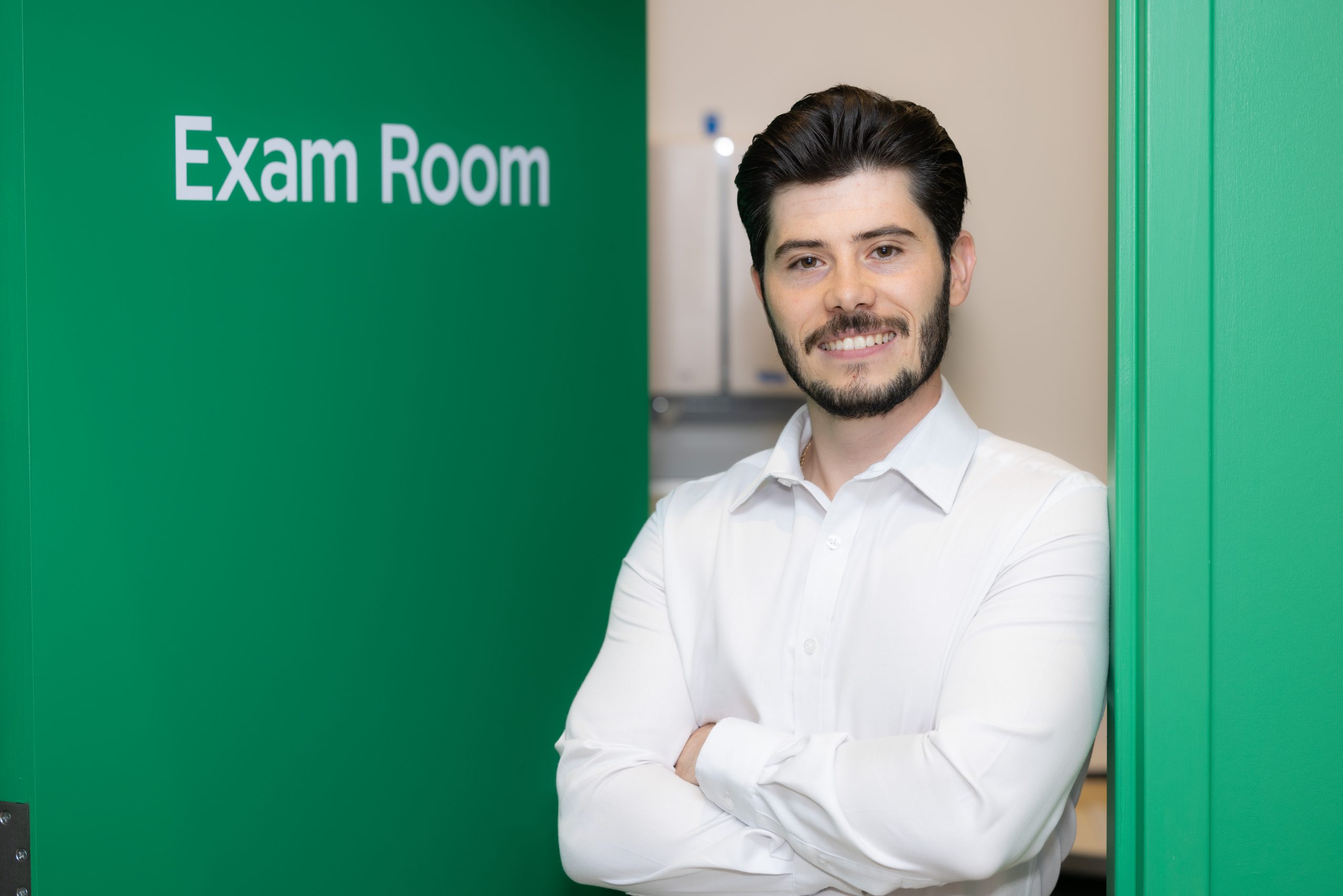
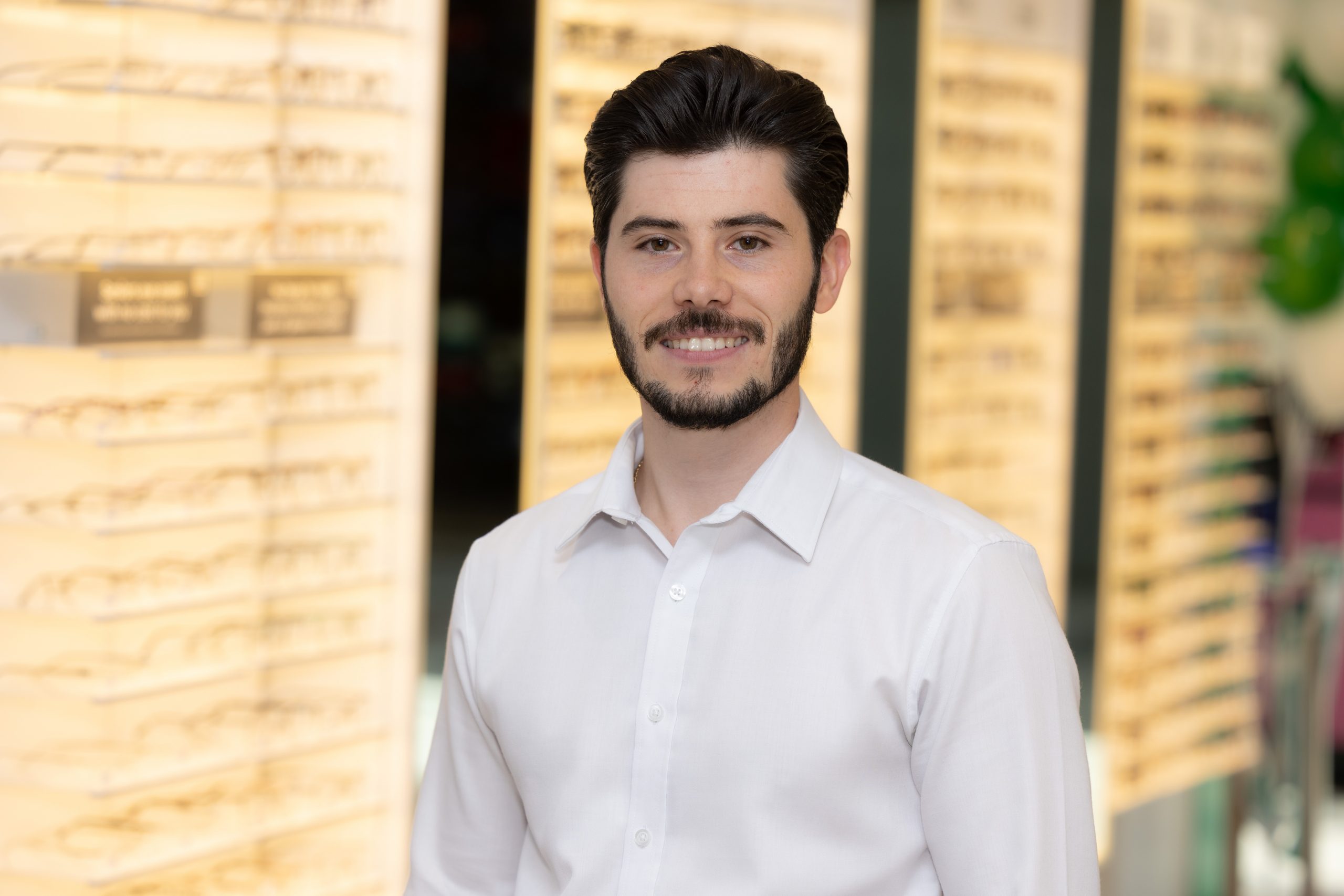
 Dr. Buzea at the opening of his Specsavers store and independent clinic at Southcentre Mall in Calgary, AB.
Dr. Buzea at the opening of his Specsavers store and independent clinic at Southcentre Mall in Calgary, AB.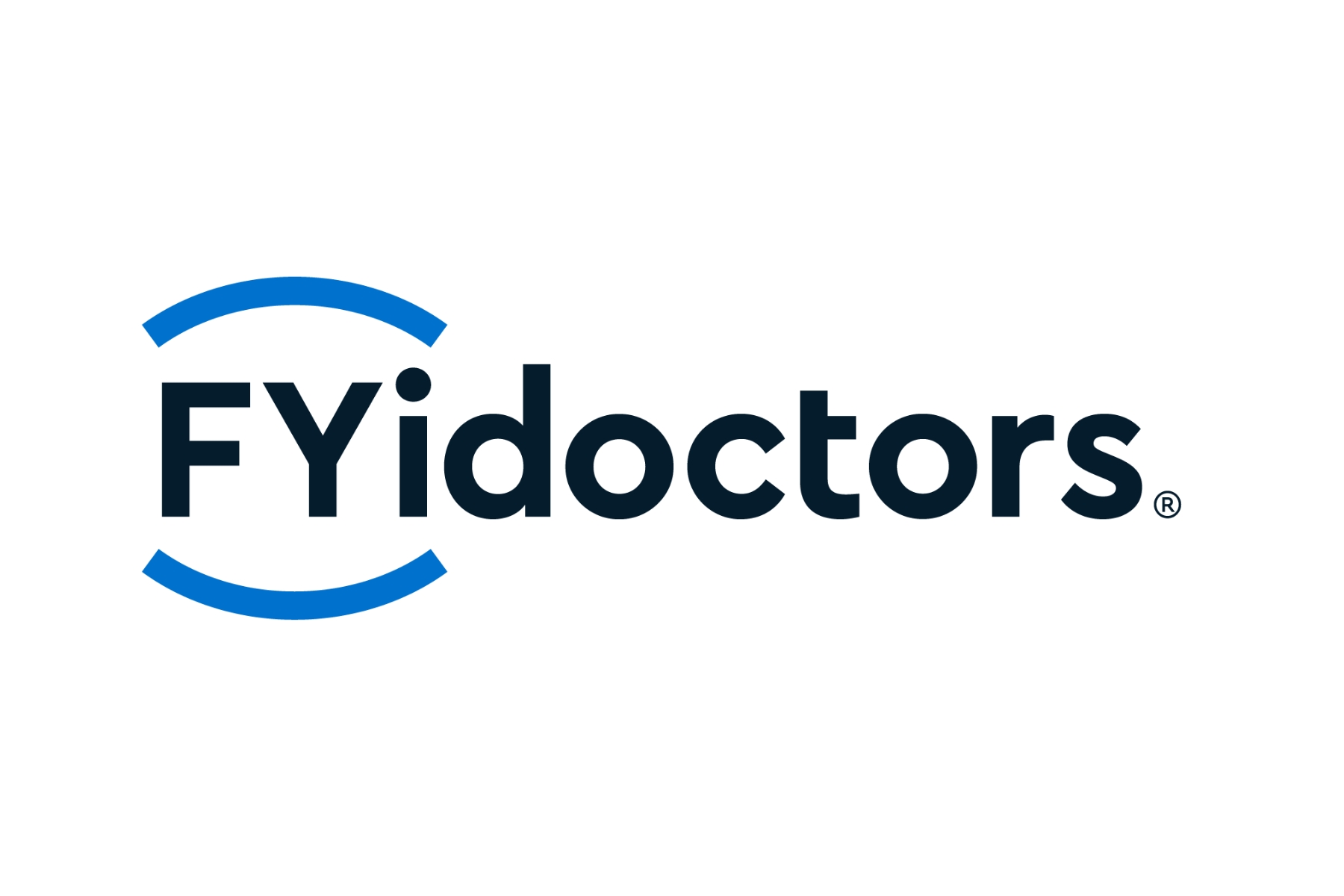
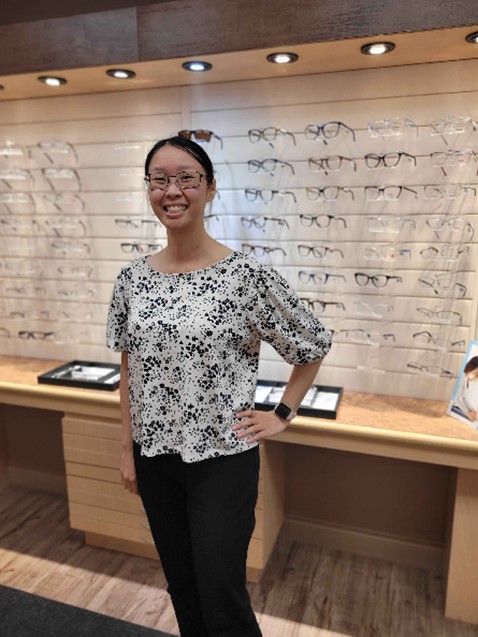 “Participating in the summer student program at FYidoctors was an amazing hands-on and inspiring experience. I appreciated the flexibility to choose whether I wanted to work at the reception or the dispensary, allowing me to tailor the program to my interests and refine any skills that I wanted to improve. Guest speakers, including experienced doctors with special interests, provided us with insightful presentations each week that broadened and deepened my understanding of the field. This program truly offered a customizable and enriching experience that has left me more excited for my future career.”
“Participating in the summer student program at FYidoctors was an amazing hands-on and inspiring experience. I appreciated the flexibility to choose whether I wanted to work at the reception or the dispensary, allowing me to tailor the program to my interests and refine any skills that I wanted to improve. Guest speakers, including experienced doctors with special interests, provided us with insightful presentations each week that broadened and deepened my understanding of the field. This program truly offered a customizable and enriching experience that has left me more excited for my future career.” 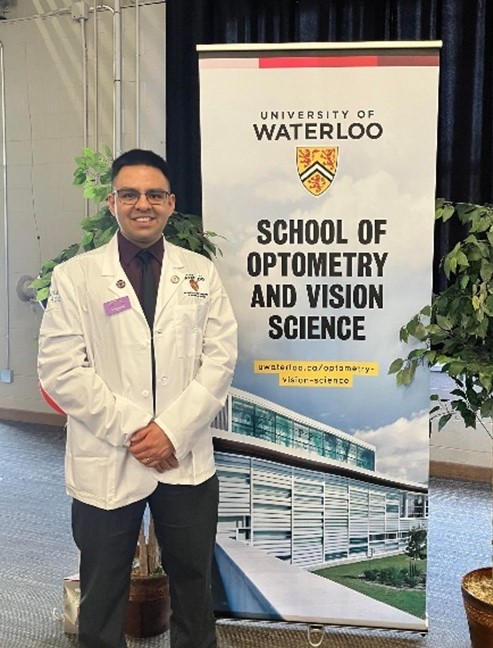
 “The FYidoctors Summer Student Program gave me the opportunity to enhance my clinical skills, particularly with patient communication and the use of diagnostic tools like the OCT and Humphrey Visual Field. It was valuable to shadow ODs during complex eye exams as well as having the opportunity to practice the skills I had learned in school like retinoscopy and refraction. The discussions I had with the seasoned professionals at a rural clinic not only boosted my confidence in my skills but also deepened my understanding of the importance of trust in the patient-doctor relationship. The advice and mentoring I received this summer led to an invaluable learning experience.”
“The FYidoctors Summer Student Program gave me the opportunity to enhance my clinical skills, particularly with patient communication and the use of diagnostic tools like the OCT and Humphrey Visual Field. It was valuable to shadow ODs during complex eye exams as well as having the opportunity to practice the skills I had learned in school like retinoscopy and refraction. The discussions I had with the seasoned professionals at a rural clinic not only boosted my confidence in my skills but also deepened my understanding of the importance of trust in the patient-doctor relationship. The advice and mentoring I received this summer led to an invaluable learning experience.”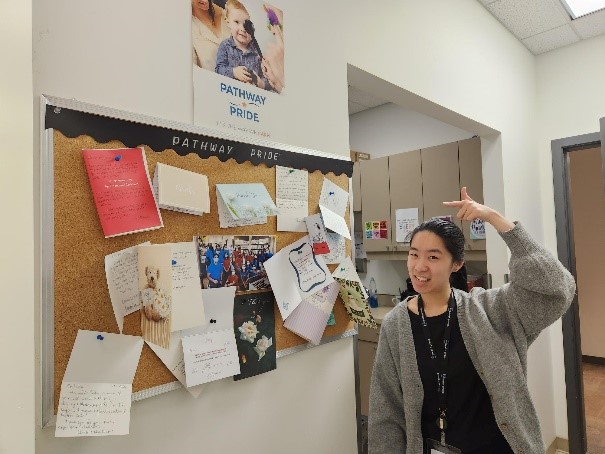 “I had an amazing experience participating in the FYidoctors Summer Student Program after my first year of optometry school. It was a fantastic opportunity to work in a clinic, observe the patient pathway, and apply what I learned in school into what I was learning in clinic. Because there are many FYidoctors locations across Canada, I am fortunate to be able to work and provide care to patients within my community. I was also able to connect with optometrists in my clinic. During the program, I was able to work and shadow the doctors, opticians, pre-screen, and front desk staff. I was also able to meet and learn from other doctors and peers in the program through weekly lunch hour socials and presentations. It is a truly rewarding and enriching 3-month experience interacting with patients and learning more about optometry!”
“I had an amazing experience participating in the FYidoctors Summer Student Program after my first year of optometry school. It was a fantastic opportunity to work in a clinic, observe the patient pathway, and apply what I learned in school into what I was learning in clinic. Because there are many FYidoctors locations across Canada, I am fortunate to be able to work and provide care to patients within my community. I was also able to connect with optometrists in my clinic. During the program, I was able to work and shadow the doctors, opticians, pre-screen, and front desk staff. I was also able to meet and learn from other doctors and peers in the program through weekly lunch hour socials and presentations. It is a truly rewarding and enriching 3-month experience interacting with patients and learning more about optometry!”